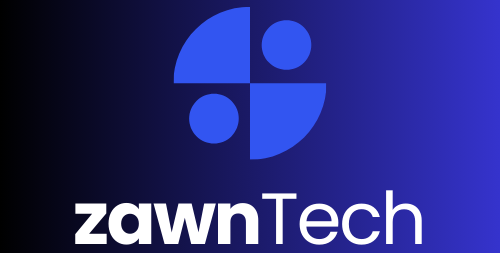Tech Wars: How Countries Are Competing for AI Supremacy
Artificial Intelligence (AI) has emerged as the cornerstone of global innovation and economic growth, reshaping industries, national security, and the balance of power. While AI promises immense benefits, it has also become the battleground for a geopolitical competition akin to a modern-day arms race. Nations are racing to achieve AI supremacy, investing billions in research, development, and talent to gain an edge in this transformative technology. But how are countries competing, and what are the implications of this high-stakes tech war?
The Stakes of AI Supremacy
AI supremacy isn’t just about technological advancement—it’s about influence and dominance. AI has the potential to transform economies, redefine military strategies, and control critical sectors such as healthcare, transportation, and finance. The country that leads in AI could dictate global norms and set the rules for emerging technologies.
Key areas where AI plays a pivotal role include:
- Economic Growth: AI-driven automation and innovation are projected to contribute trillions to the global economy over the next decade.
- Military Power: Autonomous weapons, cybersecurity, and surveillance systems powered by AI could redefine modern warfare.
- Technological Influence: Control over AI infrastructure, such as cloud computing and data pipelines, enables a country to dominate global tech ecosystems.
The Major Players in the AI Race
1. United States: The Innovation Hub
The U.S. has long been a leader in AI, thanks to its robust tech ecosystem, which includes companies like Google, Microsoft, and OpenAI. Silicon Valley is home to some of the brightest minds in AI research, and American universities consistently rank among the top institutions for AI education.
- Strengths:
- World-leading tech companies with vast resources.
- Access to global AI talent and venture capital.
- A culture of innovation and entrepreneurship.
- Challenges:
- Regulatory uncertainty around AI ethics and data privacy.
- Growing competition from China and other nations.
The U.S. government has recognized AI’s strategic importance, launching initiatives like the National AI Initiative Act to promote research and development while fostering public-private partnerships.
2. China: The AI Powerhouse
China has emerged as a formidable rival in the AI race, driven by its government’s strategic focus and massive investments in technology. With a goal of becoming the global AI leader by 2030, China is leveraging its vast population, enormous datasets, and strong state support.
- Strengths:
- Massive amounts of data from a population of over 1.4 billion.
- State-backed funding for AI startups and research.
- Rapid deployment of AI applications in smart cities, surveillance, and fintech.
- Challenges:
- Heavy reliance on U.S.-designed semiconductors and chip manufacturing.
- Growing international scrutiny over ethical concerns, such as AI-powered surveillance.
China’s AI ambitions are bolstered by companies like Baidu, Tencent, and Alibaba, as well as government initiatives like the “New Generation AI Development Plan.”
3. European Union: The Ethical Leader
The European Union (EU) is taking a different approach to the AI race, focusing on ethical development and regulation. While Europe lags behind the U.S. and China in raw AI investment and talent, it seeks to establish itself as a global leader in AI governance.
- Strengths:
- Strong regulatory frameworks, such as the AI Act, which promotes responsible and transparent AI development.
- Collaborative research initiatives across member states.
- Challenges:
- Fragmented tech ecosystem compared to centralized efforts in the U.S. and China.
- Limited access to funding and large-scale data compared to competitors.
By prioritizing trust and ethics, the EU aims to set global standards for AI, influencing how the technology is developed and deployed worldwide.
4. Other Emerging Players
- India: With a growing tech industry and a young, skilled workforce, India is positioning itself as a major player in AI development, particularly in areas like healthcare and agriculture.
- Russia: Focused heavily on military AI, Russia is investing in autonomous weapons and cybersecurity capabilities.
- Israel: A hub for AI startups, Israel excels in defense-related AI applications and innovation.
Key Battlegrounds
1. Talent Acquisition
AI talent is scarce, and countries are competing fiercely to attract top researchers and engineers. While the U.S. has traditionally been the top destination for AI talent, countries like China and Canada are making significant efforts to develop their own talent pools and reverse brain drain.
2. Semiconductors and Hardware
AI requires immense computational power, making semiconductors a critical component of the tech race. Taiwan’s TSMC and South Korea’s Samsung dominate the semiconductor industry, but the U.S. and China are racing to develop domestic manufacturing capabilities to reduce reliance on foreign suppliers.
3. Data and Infrastructure
AI thrives on data, and access to large, diverse datasets gives countries a significant advantage. Nations are also investing in cloud computing infrastructure and 5G networks to support AI applications.
4. Military Applications
AI’s role in defense is a key focus of the tech race. Autonomous drones, advanced surveillance systems, and AI-driven cybersecurity tools are being developed to give nations a strategic edge on the battlefield.
Ethical and Global Implications
The race for AI supremacy isn’t just about technological progress—it also raises ethical and geopolitical questions.
- Ethical Concerns: How can we ensure that AI is used responsibly? Issues like bias, privacy violations, and the development of autonomous weapons pose significant ethical dilemmas.
- Global Inequality: As wealthier nations invest heavily in AI, poorer countries risk being left behind, exacerbating global inequalities.
- AI Governance: Without global cooperation, the lack of standardized regulations could lead to an AI “Wild West,” where the most powerful players dominate without accountability.
The Path Forward
The competition for AI supremacy will continue to shape the future of technology, economies, and geopolitics. However, the tech war doesn’t have to be a zero-sum game. International collaboration on AI ethics, standards, and research could pave the way for a future where AI benefits humanity as a whole.
Key Recommendations:
- Invest in Education: Developing a skilled workforce is essential for maintaining competitiveness in AI.
- Promote Ethical AI: Countries must prioritize transparency, fairness, and accountability in AI development.
- Foster Global Cooperation: Collaborative efforts can ensure that AI advancements are shared equitably and used for the common good.
Conclusion
The race for AI supremacy is more than just a competition—it’s a defining moment in history. As countries vie for dominance, the choices they make today will shape the global order of tomorrow. Will this tech war lead to innovation that uplifts humanity, or will it deepen divides and create new risks? The outcome depends on whether nations prioritize cooperation over conflict and ethics over ambition.







